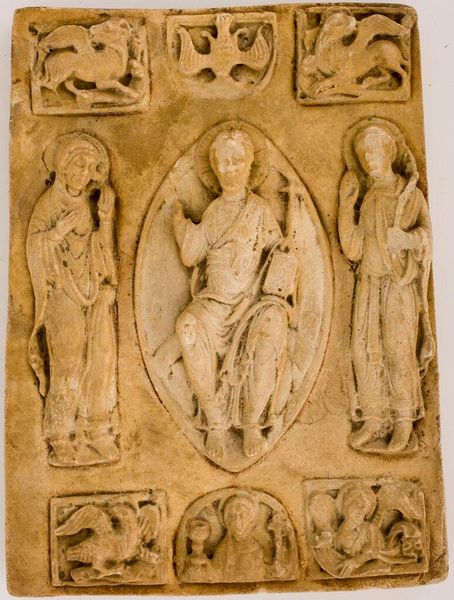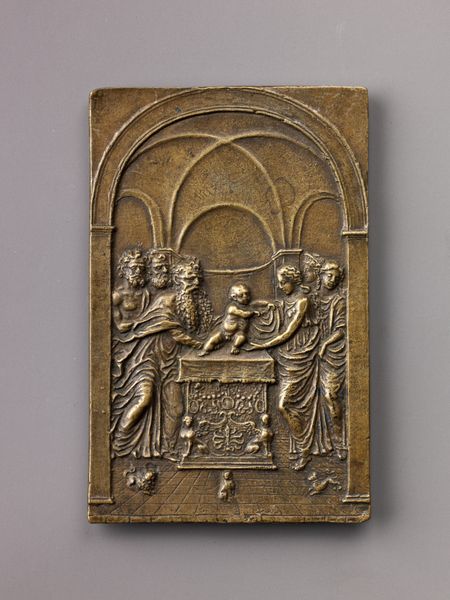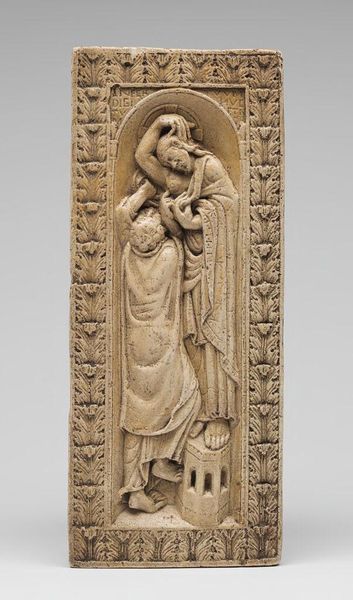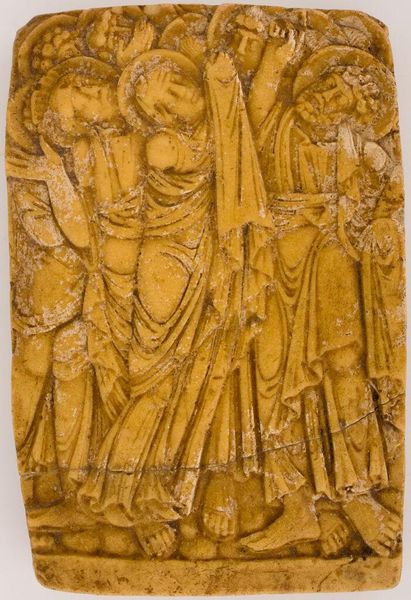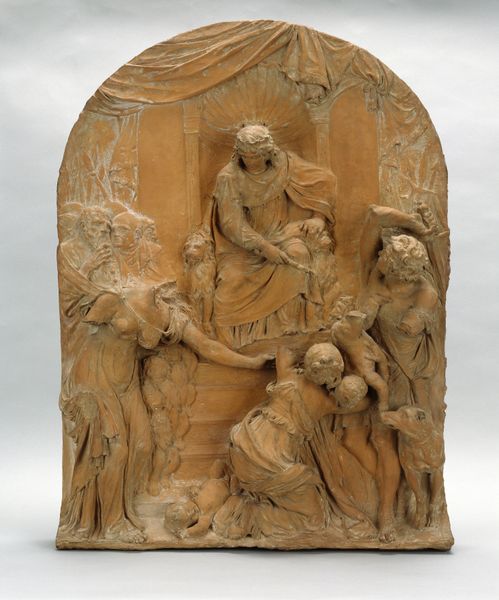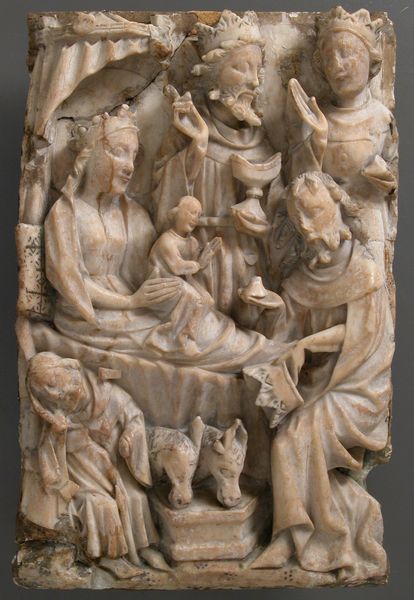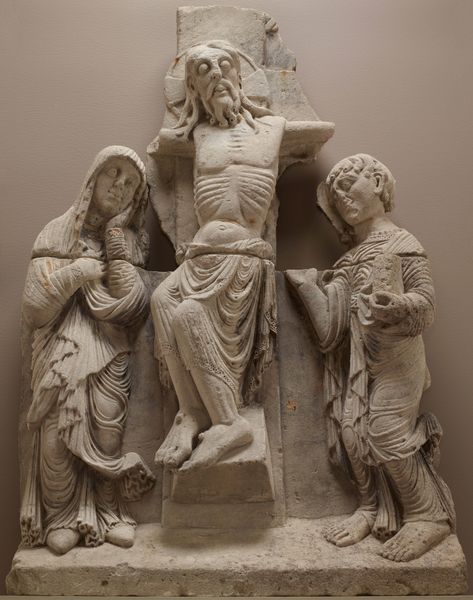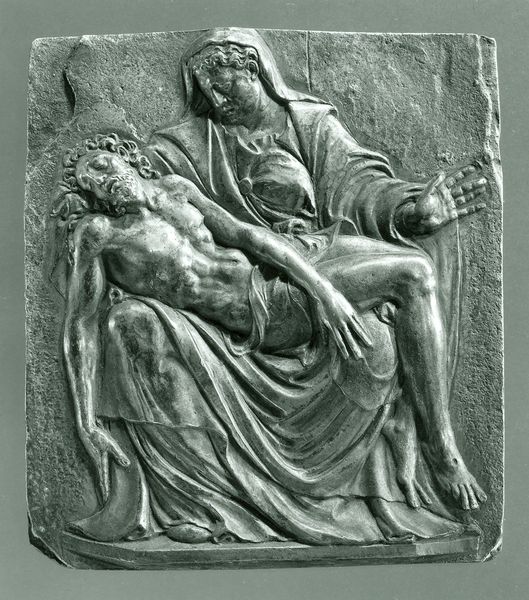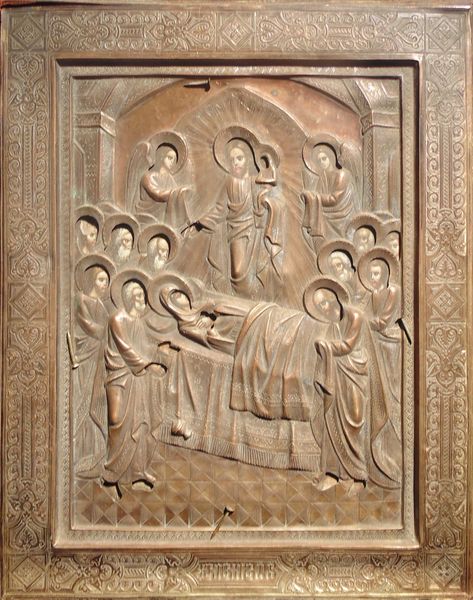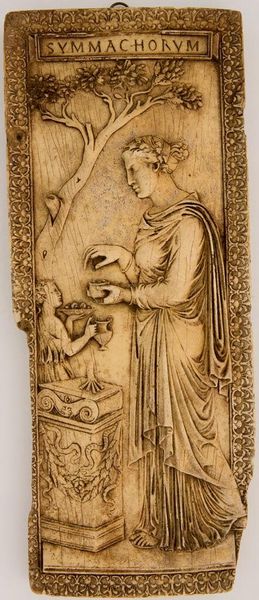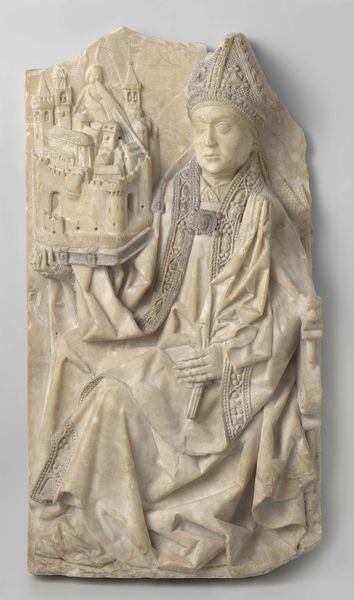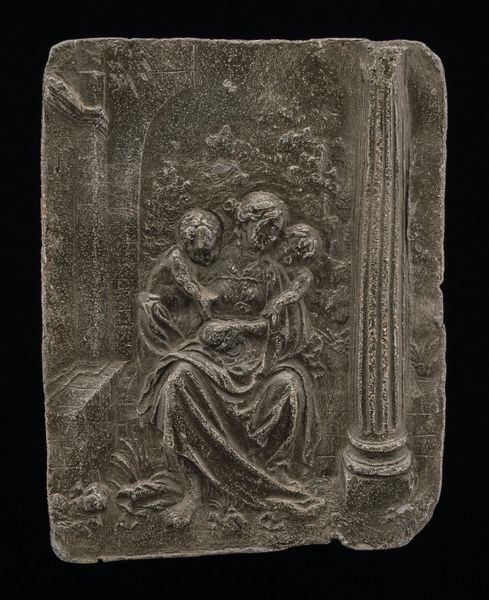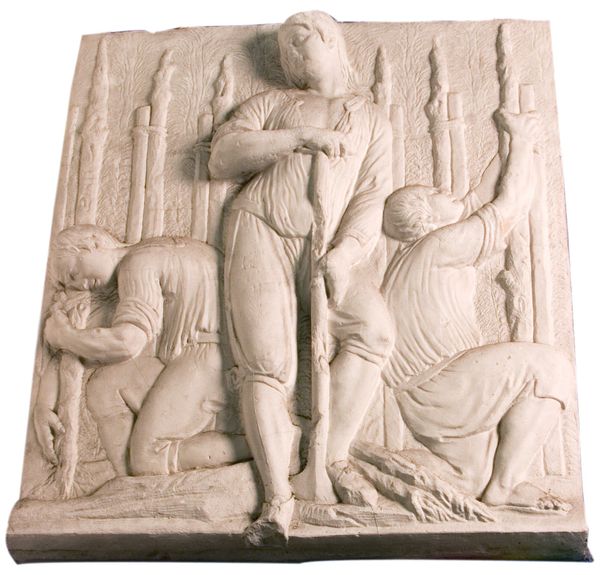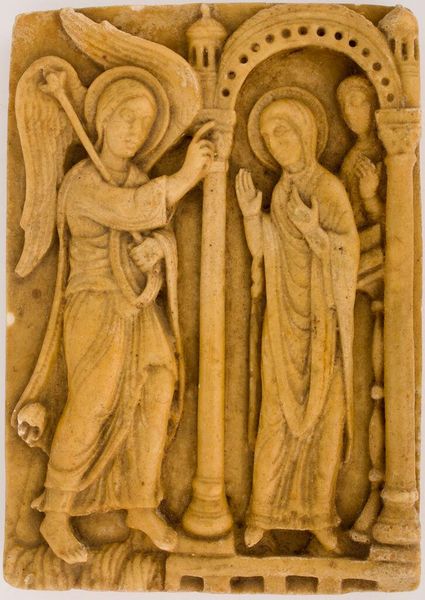
carving, sculpture, marble
#
byzantine-art
#
medieval
#
carving
#
narrative-art
#
sculpture
#
figuration
#
sculpture
#
marble
Dimensions: 4 x 3 cm
Copyright: Orthodox Icons,Fair Use
This small Byzantine ivory plaque depicts the Apostle Thomas touching the wound in Christ's side. It’s a powerful endorsement of the importance of empirical evidence for faith, which developed in the Eastern Roman Empire. The scene is striking in its intimacy. Christ's body is offered to the probing hands of Thomas. Consider the social and institutional context of the work. The Byzantine Empire from 330 AD onward had a strong centralized authority of emperors which influenced artistic production, favouring religious imagery that reinforced imperial power. The Orthodox church played a central role in Byzantine life. The figure of Thomas could represent the struggles of faith within a highly structured religious society. Didactic imagery of this kind may have served to emphasize the necessity of faith in the Church. To understand art fully, the historian examines not only the artwork itself, but also the social and institutional context in which it was made. By looking at contemporary texts, theological debates, and the history of the Byzantine church, we can gain a deeper insight into the cultural significance of this small, but thought-provoking sculpture.
Comments
No comments
Be the first to comment and join the conversation on the ultimate creative platform.
